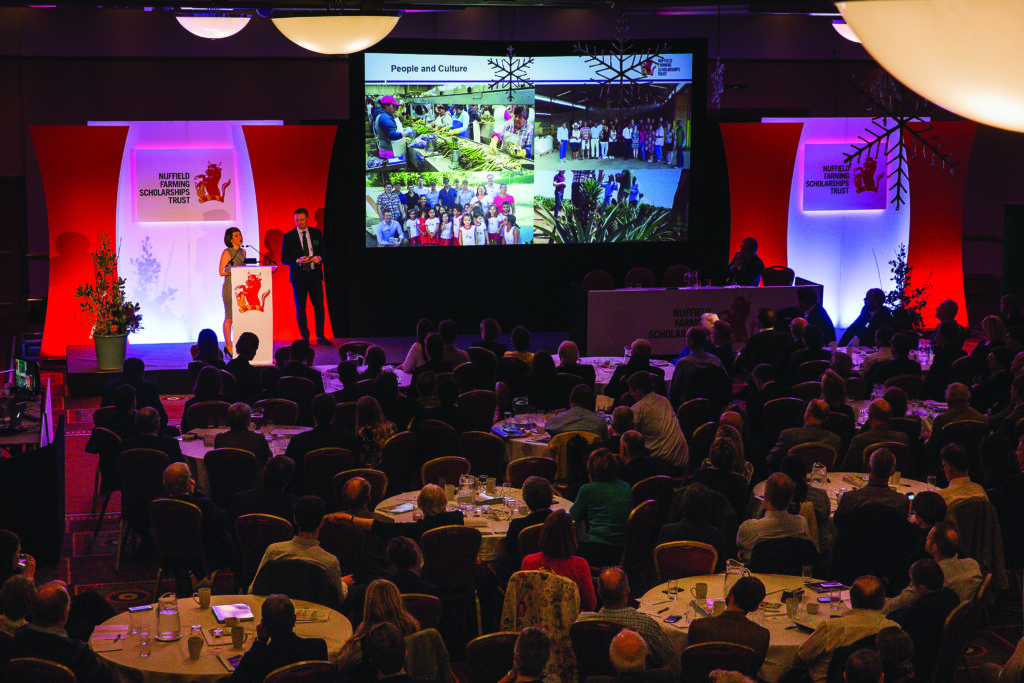At the end of November each year, I make the effort to go to the Nuffield Conference and the presentations are always excellent.
There is nearly always something interesting and relevant to our specific situation. Two stood out this time: the first that made me really think was Anna Jones, on her topic: “Help or Hinder? How the mainstream media portrays farming to the public”.
She is well qualified in the subject because she works for BBC’s Countryfile. She would like to see a register of farmers that journalists could go to for a more personal angle or comment on a particular story, rather than always having to rely on our industry bodies (good though they are!). Fundamentally, I think it is a great idea – it is always much more engaging when you see or hear a real farmer in the media, as opposed to an industry spokesman.
This made me think, though – would I put my name forward for the register? I would love to proudly sing the praises of our industry on prime time TV (well, maybe not prime time!).
But the reality is that there is a high probability I would be targeted by our non-meat eating friends – and it would not be fair to inflict that on my children or members of staff.
“It has bothered me for a while that the only pig farmers we ever see in publications or on screen are standing in nice straw yards, when the reality is that there are a very large proportion of us who have pigs on slats”
It has bothered me for a while that the only pig farmers we ever see in publications or on screen are standing in nice straw yards, when the reality is that there are a very large proportion of us who have pigs on slats. At some point we are in danger of portraying a misleading image of our industry.
Sadly, I don’t know what the solution is – I thought there might be some middle ground, but showing a farmer played by an actor or pixelating his face is not going to improve the situation.
It’s a terrible shame that I, and I am sure many others, feel uneasy about sticking our heads above the parapet. Unfortunately, as more and more people opt to take part in Veganuary or meat-free Mondays and magazines are full of milk substitutes and tofu and other things my family wouldn’t eat in a million years, it is unlikely to change soon.
The second notable presentation was James Chapman’s topic: “How farm safety can be improved”. He was particularly well qualified to talk on the subject having lost an arm in an agricultural accident.
His take home message was that the most effective way of improving farm safety for farmers is to talk to farmers about farm safety and what works for them, in the same way we discuss the best machinery, the best genetics or the weather.
So I am going to kick this off. We employ a company to help us with our health and safety paperwork and they come and speak at staff meetings. This doesn’t go down particularly well with our team, but it does mean our paperwork is in order. What I try to do is make working safely part of our everyday thought process and, although we are by no means a model farm in this respect, I try to mention the things that I think should be done differently or more carefully… I am sure I have been called a nag a time or two, but so be it.
One of my targets for this year is to find ways to get the whole of our team to engage in working safely – in particular to fix things that are broken or organise someone else to do it or to tell me how, and to come up with sensible ideas about how we can improve our safety record.
Most importantly I would like everyone to think before they act and ask: Is it safe, is it sensible?
I would like to challenge all my fellow columnists to talk about successes you have had in encouraging a safe working environment. The more ideas we can give about what works for you, the more we will spread the word. Let’s start talking regularly about safety.




